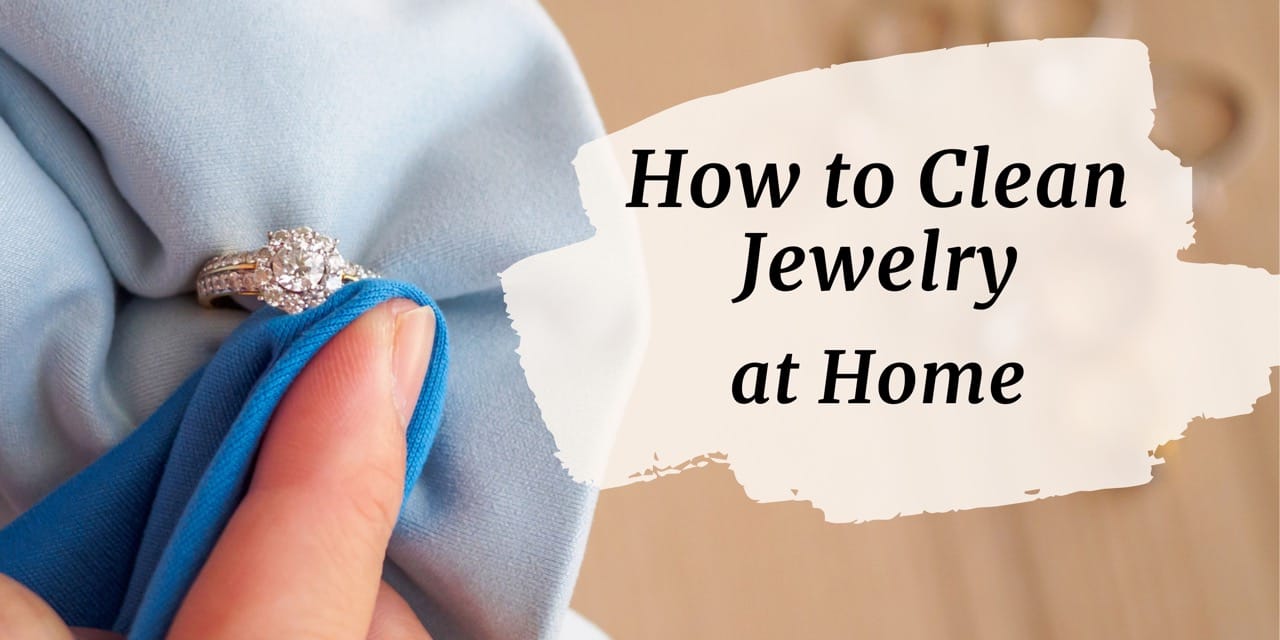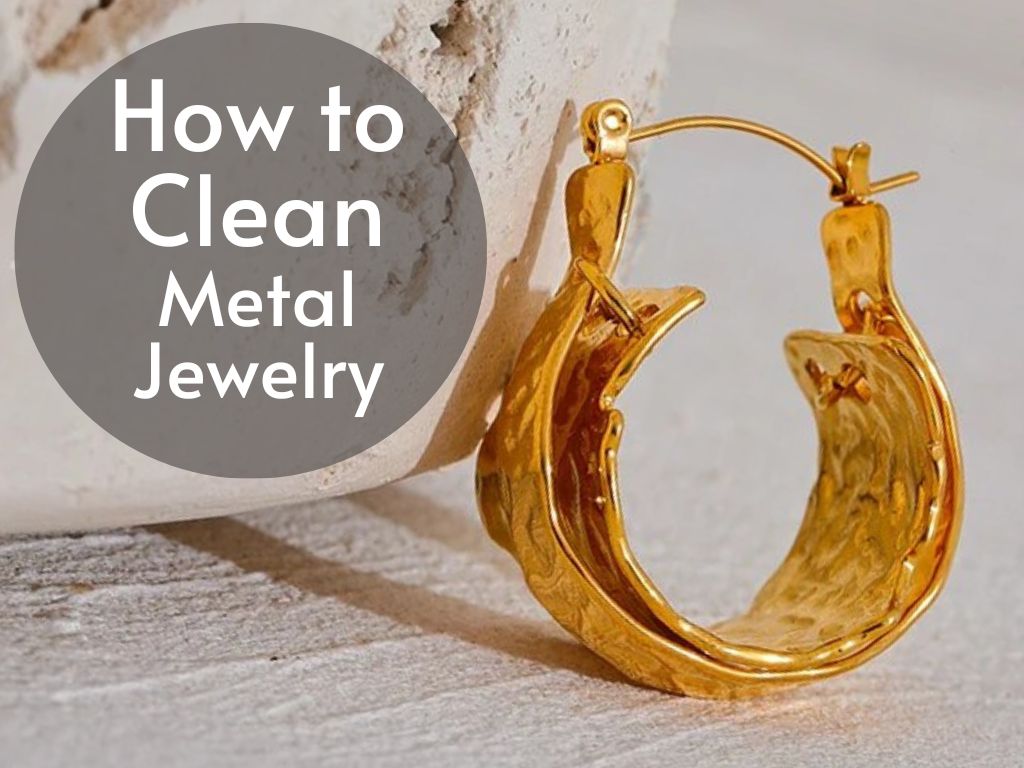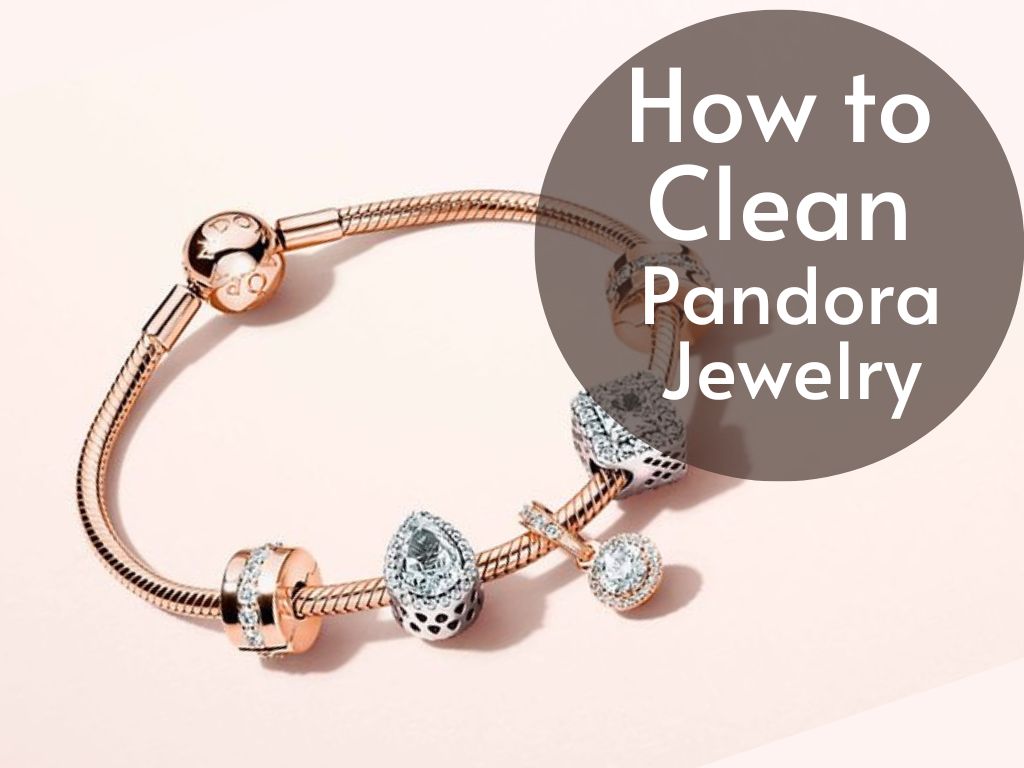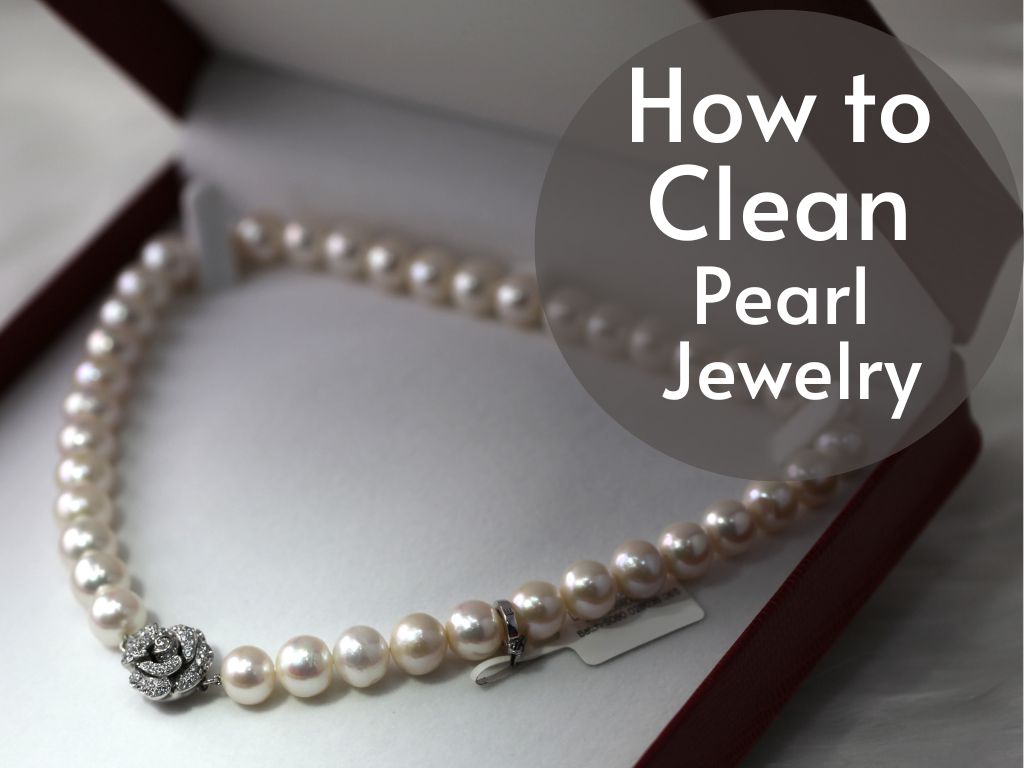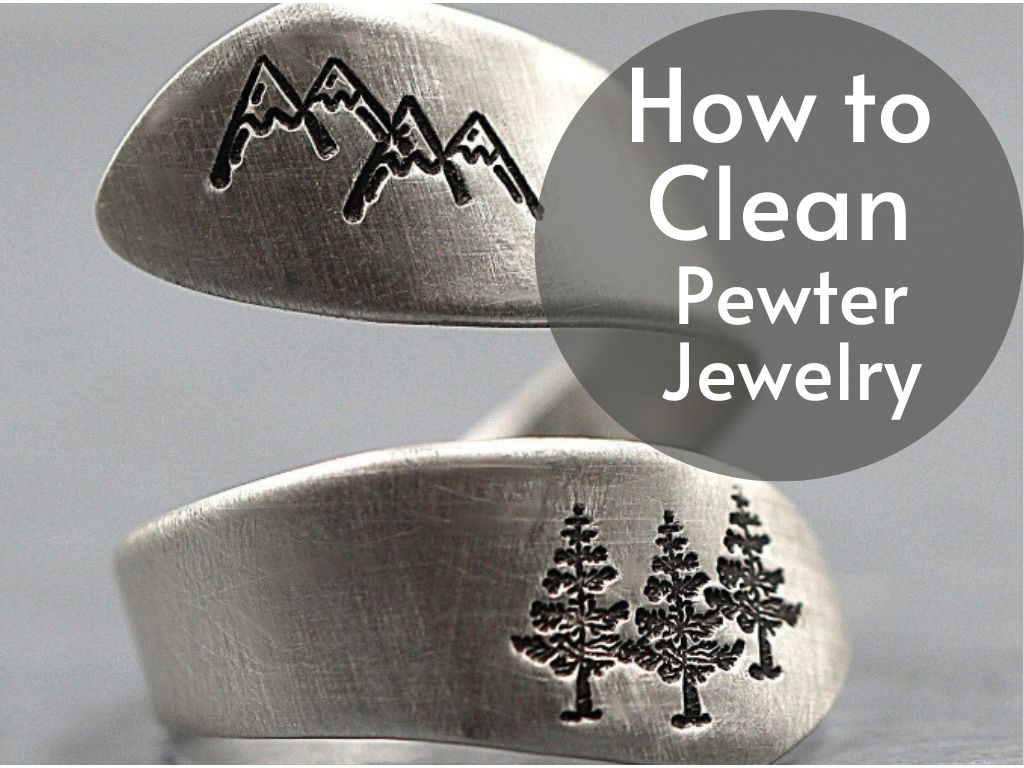Jewelry has long been cherished as a symbol of beauty, elegance, and personal style. Whether it’s a dainty silver necklace, a sparkling diamond ring, or a vibrant gemstone bracelet, our beloved jewelry pieces deserve to be treated with care and admiration.
However, over time, dirt, oils, and environmental factors can dull their shine and affect their overall appearance. This is why regular cleaning is crucial to maintain the brilliance and longevity of your precious accessories.
Importance of Cleaning Jewelry Regularly
Regular cleaning is not just an aesthetic concern; it is essential for the preservation of your jewelry’s quality. Over time, natural oils from your skin, lotions, perfumes, and everyday contaminants can build up on the surface of your jewelry items. This buildup not only diminishes their luster but can also lead to discoloration or even damage in certain cases.
Furthermore, neglecting proper cleaning can result in the accumulation of bacteria that may cause skin irritation or allergic reactions when wearing these pieces. By regularly cleaning your jewelry, you not only restore its radiant shine but also ensure its hygienic wearability for years to come.
Benefits of Cleaning Jewelry at Home
While professional jewelers offer expert services for cleaning precious jewelry items professionally, there are numerous benefits associated with cleaning your jewelry at home. Firstly – convenience. Cleaning at home allows you to take care of your valuables without having to set aside time or make appointments with jewelers.
Secondly – cost-effectiveness. Professional cleaning services often come with a price tag that may not be feasible for everyone.
By learning how to clean your own jewelry at home using simple methods and easily available materials from around the house or local stores—such as mild detergents or baking soda—you can save money while maintaining the beauty and sparkle of your collection. Moreover – control.
Cleaning your jewelry at home gives you complete control over the process, allowing you to adapt the cleaning methods to the specific requirements of each piece. You can customize the cleaning technique depending on factors such as the type of metal, gemstone, or any delicate settings.
This hands-on approach ensures that your jewelry receives individualized care and attention. – peace of mind.
By taking charge of cleaning your jewelry items yourself, you can be confident about their safety and prevent any accidental loss or damage that could occur during transportation or while being handled by others. Regular cleaning is a vital aspect of maintaining the allure and integrity of your cherished jewelry pieces.
By understanding the importance of regular cleaning and embracing home-based cleaning methods, you can ensure that your jewelry remains radiant, hygienic, and continues to symbolize your unique style for years to come. In the following sections, we will explore various methods to clean different types of jewelry effectively.
General Precautions
Identifying Different Types of Jewelry and Their Specific Cleaning Requirements
When it comes to cleaning jewelry at home, it is essential to understand the distinct characteristics and requirements of different types of jewelry. Each type, such as gold, silver, diamonds, or precious gemstones, demands specific attention to ensure their longevity and sparkle. Gold jewelry, being durable and resistant to tarnish, can generally be cleaned more vigorously than other types.
Silver jewelry, on the other hand, requires gentler cleaning methods to prevent scratching or damaging its delicate surface. Diamonds and precious gemstone jewelry require careful cleaning techniques due to their intricate settings and potential vulnerabilities.
Checking for Loose Stones or Damaged Settings Before Cleaning
Before delving into the cleaning process, it is crucial to inspect your jewelry for any loose stones or damaged settings. Pay close attention to prongs that may have come loose or worn down over time.
Gently wiggle each stone with your fingers or use a soft cloth to check for any movement. If you detect any looseness or damage, it is advisable not to clean the piece at home but rather seek professional assistance from a jeweler who can repair the setting securely before proceeding with the cleaning process.
Avoiding Harsh Chemicals or Abrasive Materials That May Damage the Jewelry
To preserve your precious adornments effectively during home-based cleaning sessions, it is vital to steer clear of harsh chemicals and abrasive materials that can cause irreversible damage. Avoid using bleach, chlorine-based cleaners, or ammonia solutions as they can corrode metals and discolor gemstones.
Similarly, refrain from using abrasive tools like steel wool or harsh brushes that might scratch delicate surfaces or wear away protective coatings present on some pieces of jewelry. Instead, opt for mild cleaners specifically formulated for each type of jewelry material.
Remember that prevention is often easier than restoration, so it is advisable to remove jewelry before engaging in activities that may expose it to chemicals or damage. Additionally, store your jewelry in soft pouches or lined compartments to protect them from scratches and minimize the need for frequent cleaning.
By following these general precautions, you can ensure the longevity and beauty of your treasured pieces while avoiding any potential mishaps during the cleaning process. Stay tuned for the next sections where we will explore detailed cleaning methods for different types of jewelry, including gold, silver, diamonds, and precious gemstones.
Gold Jewelry
Gold jewelry is a timeless and luxurious accessory that requires proper care to maintain its lustrous appearance. To clean your gold jewelry at home, begin by soaking it in a bowl of warm soapy water.
Use a mild detergent or dish soap to create the soapy solution, ensuring it is not too strong. Let the jewelry sit in the water for about 15 minutes to loosen any dirt or debris.
After soaking, gently scrub the gold jewelry with a soft brush, such as a toothbrush with soft bristles or a dedicated jewelry brush. Pay extra attention to intricate designs or detailed areas where dirt may accumulate.
Be cautious not to scrub too vigorously, as gold is a relatively soft metal that can easily scratch. If you notice stubborn tarnish or dirt buildup on your gold jewelry, you may consider using a gold-specific cleaner.
These cleaners are specifically formulated to remove tarnish and restore the sparkle of your gold pieces. Follow the instructions provided by the manufacturer carefully and ensure thorough rinsing after cleaning.
Silver Jewelry
Silver jewelry adds an elegant touch to any ensemble but tends to tarnish over time due to exposure to air and moisture. Fortunately, there are simple yet effective methods for cleaning silver at home. One popular technique involves creating a homemade silver cleaning solution using baking soda, salt, and aluminum foil.
To make this solution, line a small container with aluminum foil and fill it with hot water. Add one tablespoon of salt and one tablespoon of baking soda into the container while stirring gently until they dissolve.
Submerge your silver jewelry in this mixture for around five minutes, ensuring all surfaces come into contact with the solution. After soaking, use a soft cloth or sponge to polish your silver pieces gently.
The combination of aluminum foil and chemical reaction will help remove tarnish and restore the silver’s shine. Rinse the jewelry thoroughly with lukewarm water and pat it dry with a clean, lint-free cloth to prevent water spots or discoloration.
Diamond Jewelry
When it comes to cleaning diamond jewelry at home, a gentle approach is essential to avoid any damage. Begin by soaking your diamond pieces in a bowl of warm water mixed with mild dish soap.
This solution will help remove dirt, oils, and residues that may have accumulated on the surface of the diamonds. After soaking for a few minutes, use a soft toothbrush with gentle bristles to scrub around the diamonds’ settings and along any intricate patterns or designs.
Be cautious when brushing near prongs or settings to avoid loosening or displacing the stones. Rinse your diamond jewelry thoroughly under warm running water to ensure all traces of soap are removed.
Pat dry using a clean cloth or let them air-dry on a soft towel. Avoid using tissues or paper towels as they can leave behind fibers or scratches.
Precious Gemstone Jewelry (e.g., emeralds, rubies, sapphires)
Precious gemstone jewelry requires specific care due to their unique characteristics and varying degrees of hardness. To clean these special pieces at home, start by mixing lukewarm water with mild detergent in a bowl.
Create enough soapy solution to submerge your gemstone jewelry comfortably. Gently place your gemstone jewelry into the soapy mixture and let it soak for approximately 10-15 minutes.
During this time, dirt and grime will loosen from the surface of the gemstones. Using a soft toothbrush with delicate bristles, gently brush each gemstone in circular motions while they are still submerged in the soapy solution.
Take care to avoid excessive force or pressure, especially with softer gemstones like opals or pearls. After gently brushing, rinse the gemstone jewelry under lukewarm running water to remove any leftover soap residue.
Once clean, carefully dry each piece using a lint-free cloth. Avoid using heat sources like hairdryers as they may damage certain gemstones or cause discoloration.
Specialized Cleaning Techniques for Specific Jewelry Pieces
Delicate or Vintage Jewelry
When it comes to delicate or vintage jewelry pieces, extra precautions must be taken to preserve their integrity. These heirlooms often require special care due to their age or intricate design. To ensure the safety of these precious items, it is highly recommended to consult professional jewelers when unsure about proper cleaning methods.
They have the expertise and knowledge to handle these delicate pieces with utmost care, using specialized techniques and solutions tailored to their unique requirements. Cleaning delicate or vintage jewelry at home can be risky as improper handling or harsh chemicals may cause irreparable damage.
Professional jewelers possess the necessary skills and tools to clean such pieces without compromising their structural integrity. Entrusting your cherished items in the hands of trained professionals ensures that they will be handled with precision and expertise, ensuring their longevity.
Avoiding Excessive Moisture Exposure
One critical aspect of cleaning any type of jewelry is avoiding excessive moisture exposure. While water is commonly used in cleaning processes, prolonged contact with moisture can lead to damage, especially for delicate materials like pearls or opals.
Excessive moisture exposure may cause discoloration, weaken adhesives holding gemstones in place, or even lead to rusting of metal components. To prevent such risks, carefully pat dry each piece after rinsing them under lukewarm water during cleaning processes.
Use a soft cloth specifically designed for jewelry cleaning purposes or opt for lint-free microfiber cloths that won’t scratch the surfaces. Additionally, avoid wearing jewelry while engaging in activities like swimming or showering where prolonged submersion is likely.
Conclusion
Learning how to clean your jewelry at home is not only practical but also enables you to maintain its brilliance and extend its lifespan. Regularly caring for your precious adornments helps prevent the buildup of dirt, oils, and tarnish that can dull their luster over time.
By following the outlined cleaning methods and taking into account the specific requirements of different jewelry pieces, you can effectively restore their beauty without causing any damage. Remember, when dealing with delicate or vintage jewelry, it is always wise to seek professional guidance to ensure their proper care.
Avoiding excessive moisture exposure is another crucial aspect of home jewelry cleaning. By implementing these practices and dedicating a little time to upkeep your cherished pieces, you will not only be able to enjoy their sparkle for years to come but also take pride in your ability to maintain them on your own.

